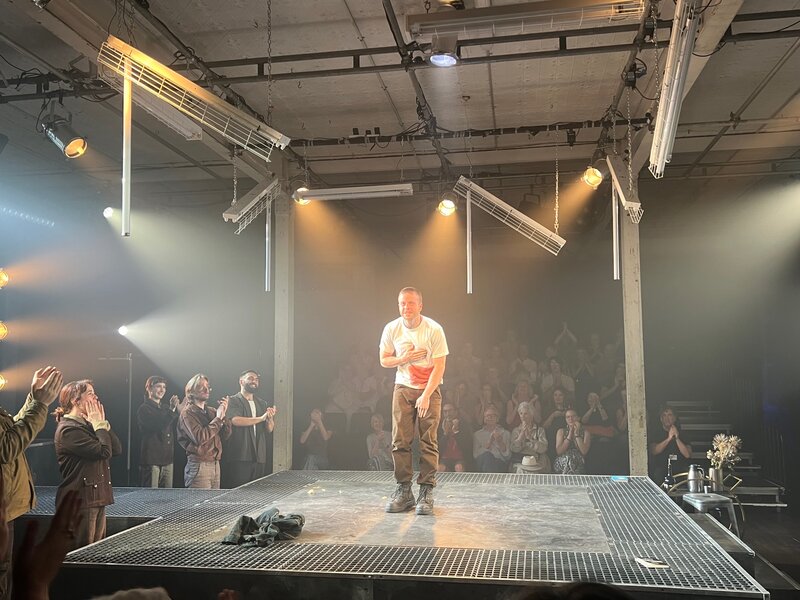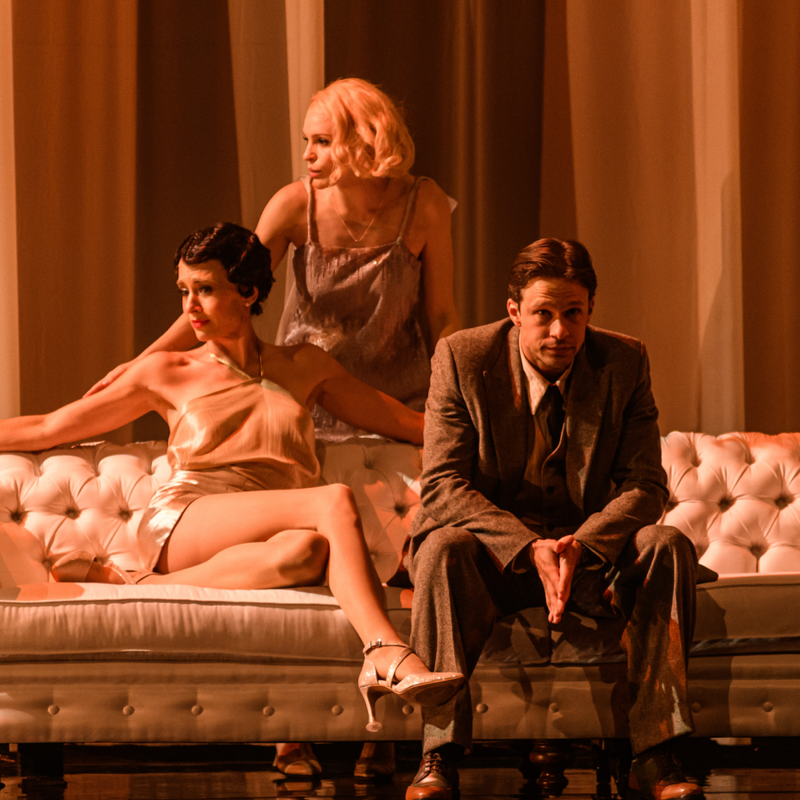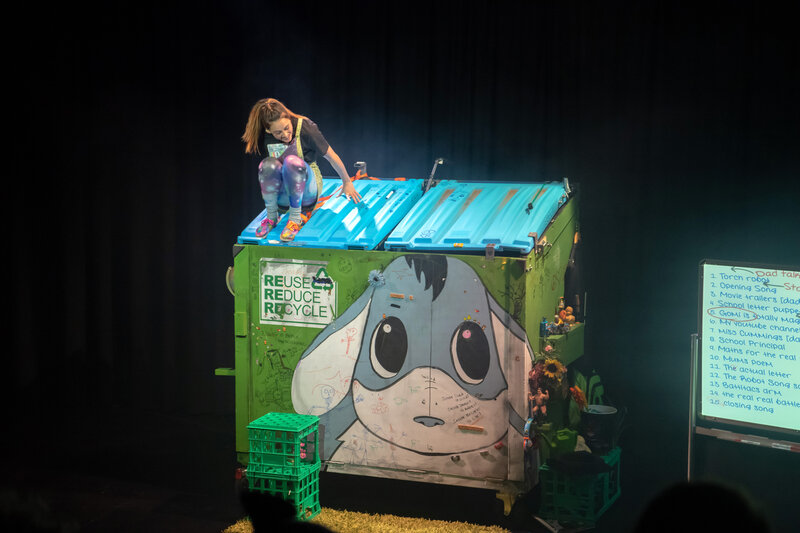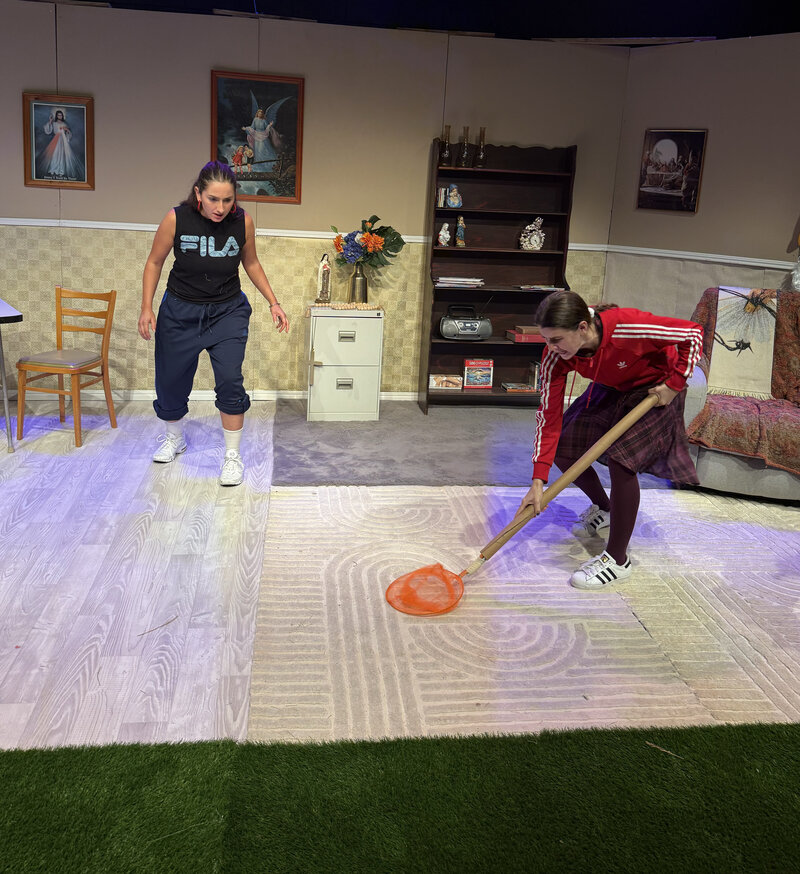Comedian Glynn Nicholas has parlayed the cult following of the syrupy sweet Eurovision Song Contest into his often hilarious and decidedly agreeable new show, Song Contest.
Eurovision is the longest-running annual international TV song competition that sees upwards of 20 European countries vying for the adulation that goes to the winner. Hundreds of millions of viewers around the world watch it each year. In Australia, SBS is the host broadcaster and, for the first time, we received guest entrant status last year as part of the 60th anniversary celebrations (we’ll be back again this year).
 Song Contest – The Almost Eurovision Experience is split into two feel-good halves. In the first act representatives of 11 nations perform their original songs against a backdrop of outrageous costumes, wind-blown hair, slick choreography, “mood” lighting, the weird and the not so wonderful. Audience participation is actively encouraged – and is, indeed, liberally provided – by the use of clackers and small country flags that patrons can purchase as “a set” for $5 as they enter the theatre. Ahead of the show, each of us has been “gifted” a nation (from amongst the 11) that we can call our own. Before we enter the theatre, we randomly select a country badge from a hat, which we pin to our clothing to represent our allegiance.
Song Contest – The Almost Eurovision Experience is split into two feel-good halves. In the first act representatives of 11 nations perform their original songs against a backdrop of outrageous costumes, wind-blown hair, slick choreography, “mood” lighting, the weird and the not so wonderful. Audience participation is actively encouraged – and is, indeed, liberally provided – by the use of clackers and small country flags that patrons can purchase as “a set” for $5 as they enter the theatre. Ahead of the show, each of us has been “gifted” a nation (from amongst the 11) that we can call our own. Before we enter the theatre, we randomly select a country badge from a hat, which we pin to our clothing to represent our allegiance.
Incidentally, the Almost Eurovision Experience contest is being staged in Belarus and the countries represented are Italy, Ireland, Greece, Sweden, Russia, Norway, Germany, Poland, United Kingdom, Hungary and Iceland. At the end of the competition, each audience member is called upon to vote for his/her top five songs through his/her mobile phone – via app or a special web site – or with paper and pen.
After interval, representatives of each of the 11 competing nations appear on a balcony to either side of the stage to announce their country’s votes for the top five songs – from fifth to first. The voting system allows for 1 point to be awarded to the nation judged fifth, 5 for fourth, 8 for third, 10 for second and 12 for first. As each country’s representative calls out the votes (and they cannot vote for their own nation), their scores are tallied on a large electronic board that appears above the stage.
The hostess is Melbourne comedian, Bev Killick, who assumes the persona of Bettina Bitjakokov with confidence and aplomb. The bad jokes and one-liners fly thick and fast … and I, for one, wouldn’t have it any other way. Bitjakokov is out to show the world that Minsk has what it takes to stage a world-class event.
Apart from the host, the performers fill multiple roles and do so with distinction. It is only appropriate that I name and “shame” them. They are the delightful, the wild and the deliciously wicked Djon Alexander, Elise Brennan, Jacob Dibb, Julia Grenda, Kimberley Hodgson, Vincent Hooper, Jessica Lindon, Tehya Nicholas, Jem Nicholas, John O’Hara, Tom Oliver, Julie Sharpe and Sophie Wright.
 The original songs are fantastic, fun, fanciful and frivolous. Let’s be candid … there’s a lot of love in the room and laughter is the stock in trade. Put simply, the stars of the piece have great voices and the music they produce – primarily pop rock – is very, very catchy.
The original songs are fantastic, fun, fanciful and frivolous. Let’s be candid … there’s a lot of love in the room and laughter is the stock in trade. Put simply, the stars of the piece have great voices and the music they produce – primarily pop rock – is very, very catchy.
Creating an on stage “mock” version of the Eurovision Song Contest is a great idea that Glynn Nicholas, who is producer and director, has pulled together beautifully. Kudos goes to him and to his support team. They include Jason Coleman (Ministry of Dance) as associate director, music producers Daniel and Gideon Frankel and choreographers Yvette Lee and Jason Coleman. Stephen Hawker is responsible for lighting and Richard Jeziorny the sets and costumes.
There is no reason to believe that Song Contest – The Almost Eurovision Experience – like the real thing – won’t develop a cult following to perhaps (or perhaps not) even rival The Rocky Horror Show! Playing at the Alex Theatre in St Kilda until 1st May, it has a running time of 2½ hours including a 20-minute interval and you can purchase tickets here.
Alex First

David Edwards is the former editor of The Blurb and a contributor on film and television




